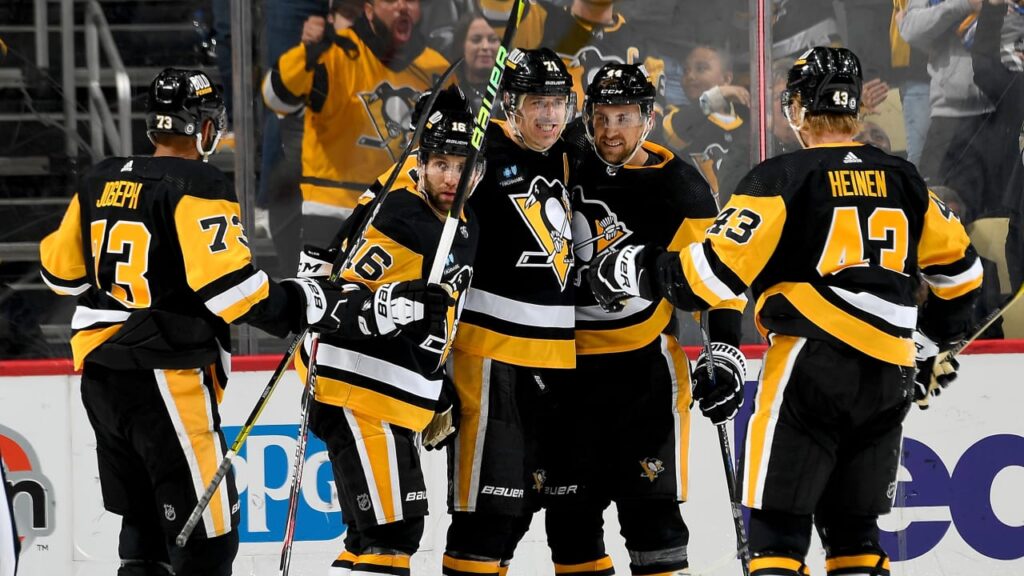Team History
The Pittsburgh Penguins are one of the NHL’s most storied franchises, with a rich history filled with superstars, championships, and passionate fan support. Their legacy is etched into hockey lore, defined by periods of dominance, exciting rivalries, and unwavering determination within a city deeply connected to its team.
The Penguins represent a major part of Pittsburgh’s sporting identity, bringing not only thrilling entertainment but a sense of community pride. The team’s iconic black and gold colors are woven into the city’s fabric, signifying a commitment to hard work and a never-say-die attitude that mirrors the spirit of Pittsburgh itself.
Foundation and Early Years
The Pittsburgh Penguins were born out of the NHL’s 1967 expansion, which sought to double the league’s size. State Senator Jack McGregor played a vital role in securing Pittsburgh a franchise. The team’s name, “Penguins,” was chosen through a public contest, referencing the igloo-shaped Civic Arena, their original home.
The Penguins’ early years were a time of growth and inconsistency. While they boasted some talented players like Andy Bathgate and “Les Binkley”, the team struggled to find sustained success in an increasingly competitive league. Despite those challenges, the Penguins quickly established themselves with a loyal fanbase, becoming an integral part of Pittsburgh’s sports scene.
Notable Early Achievements
Even during a challenging era, the Penguins managed to carve out moments of brilliance. They reached the playoffs in their first three years of existence, demonstrating their potential. In the 1970s, players like Syl Apps Jr., Ron Schock, and Jean Pronovost propelled the team to more consistent playoff appearances, laying the foundation for future success.
Despite not winning a Stanley Cup during their initial seasons, the Penguins developed a reputation for hard-fought hockey and resilience. These early years established the team’s identity and set a stage for the remarkable chapters to come.
Periods of Change
The 1980s marked a significant turning point for the Penguins. After years of mediocrity, the drafting of superstar Mario Lemieux in 1984 ignited a transformation. Lemieux’s arrival coincided with a period of shrewd management decisions, building a championship-caliber team around their generational talent.
Yet, the road was not without bumps. The team faced financial struggles in the mid-90s, even flirting with relocation. However, Lemieux’s unwavering commitment and the team’s on-ice resurgence fueled by stars like Jaromir Jagr revitalized the Penguins. This turbulent period cemented the unbreakable bond between the Penguins, their dedicated fans, and the city of Pittsburgh.
Championships and Achievements
The Penguins’ rise to greatness is defined by their Stanley Cup victories. They captured their first championship in 1991, led by Lemieux, and successfully defended their title in 1992. After a period of rebuilding, the Penguins returned to the pinnacle of hockey in 2009 with Sidney Crosby at the helm, followed by back-to-back titles in 2016 and 2017.
Beyond those five Stanley Cups, the Penguins have built a legacy of consistent excellence. They own one of the longest active playoff streaks in North American sports. Individual awards abound with legends like Lemieux, Jagr, Crosby, and Evgeni Malkin earning countless trophies – testimony to the Penguins’ sustained ability to draft and nurture generational talents.
Current Roster
The current Penguins team continues the tradition of skilled, dynamic players. Sidney Crosby remains the team’s captain and heart and soul, while Evgeni Malkin provides veteran leadership and scoring prowess. Talented forwards like Jake Guentzel and Bryan Rust form a potent offensive core. Rising stars on defense like Kris Letang provide a rock-solid foundation and offensive flair
The goaltending is manned primarily by Tristan Jarry, a capable netminder tasked with carrying the load in Pittsburgh’s net. The blend of established veterans and exciting young prospects ensures the Penguins remain a competitive force in the NHL’s ever-evolving landscape.
Management and Coaching Staff
The Penguins are guided by a mix of established hockey figures and new-age leaders. General Manager Ron Hextall, a former star goalie himself, oversees the team’s roster construction. Head Coach Mike Sullivan, at the helm since 2015, has earned a reputation for effectively balancing the Penguins’ veteran presence with their youthful energy.
The Penguins’ front office and coaching staff prioritize a style of hockey known for speed, skill, and offensive creativity. They have built a system that complements their superstars’ talents while fostering a competitive team environment.
Home Stadium Information
The Pittsburgh Penguins call PPG Paints Arena their home. This modern, multi-purpose facility opened in 2010 and has become a beloved landmark in the city. With a seating capacity exceeding 18,000 for hockey games, it creates an electric atmosphere, known for its boisterous and passionate fanbase. The arena’s design offers excellent sightlines for all spectators and boasts top-notch amenities, enhancing the overall game-day experience.
PPG Paints Arena is more than just a hockey venue. It was constructed with versatility in mind, making it an ideal location for major concerts, sporting events, and other forms of entertainment. Located in the heart of downtown Pittsburgh, the arena plays a key role in the city’s vibrant cultural scene and has contributed significantly to revitalizing the surrounding area.
-
*********** ***** ******* *** ***** ** ************ **** ********* *****dd.mm.yyyy 00:00 PM
-
****** *********** **** ** ***** ****** *** **** *** ******: ********* *** ******* *** ****'* ****dd.mm.yyyy 00:00 PM
-
*********-***** ********: **** 6 **** *** ***** *** * ********* **** 7dd.mm.yyyy 00:00 PM
-
**********-************ *******: ****** ****ć, ******* *******, *** * ********* ********** ********dd.mm.yyyy 00:00 PM
-
********* **** ********* ** *** ***: ********* *** ********* ** ****** ******** **. *** *** *****dd.mm.yyyy 00:00 PM
-
****************** ******* **********: *** ********' **** ****dd.mm.yyyy 00:00 PM







